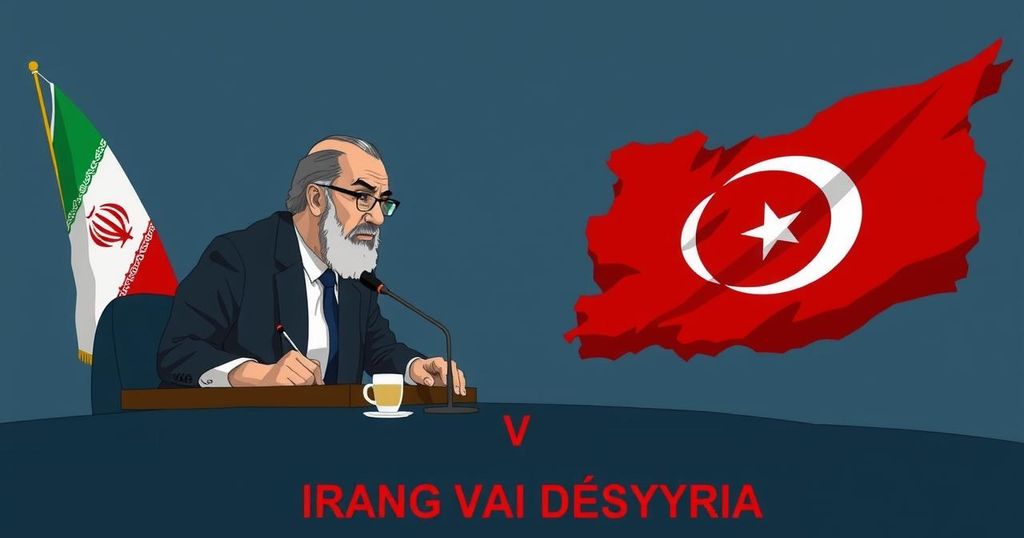Iran-Turkey Relations Strained Amid Syrian Conflict Tensions
Iranian Foreign Minister Abbas Araghchi’s visit to Turkey was fraught with tension as he accused Turkey of supporting Syrian rebels. Turkish officials denied these claims and emphasized the need for genuine political engagement from the Assad regime. The visit reflects ongoing geopolitical dynamics and highlights the complexities of foreign involvement in Syria’s civil war.
The visit of Iranian Foreign Minister Abbas Araghchi to Ankara was marked by heightened tensions as he conveyed Tehran’s displeasure regarding Turkey’s alleged support for Syrian rebel forces attempting to gain control of Aleppo. Following discussions with Syrian President Bashar al-Assad, Araghchi sought to emphasize Iran’s unwavering backing of the Assad regime. He also hinted at the possibility of Iranian troop deployment to Syria should the Syrian government request it, escalating the rhetoric between the two nations. Turkish Foreign Minister Hakan Fidan countered these allegations, asserting that Turkey had not assisted the rebels and criticized both Iran and Assad for their lack of constructive engagement in ongoing peace processes. Fidan emphasized the importance of addressing the legitimate demands of the Syrian opposition and facilitating dialogue between all parties involved, while also urging Iran to cease blaming external factors for internal conflicts. Despite efforts to convene a meeting involving Iranian, Turkish, and Russian foreign ministers, discussions appeared to yield no new solutions to the ongoing crisis. Turkish President Recep Tayyip Erdogan reaffirmed his commitment to a peaceful resolution, advocating for the necessity of a sincere political process from the Syrian regime to mitigate ongoing violence and humanitarian crises.
The geopolitical tensions in Syria have drawn in various regional powers, particularly Iran and Turkey, both of which support opposing sides in the ongoing civil conflict. Iran has consistently backed the Assad regime, while Turkey has supported various rebel factions. This has led to heightened diplomatic strains and challenges in achieving a unified strategy for resolving the crisis. The situation in Aleppo reflects the broader conflict dynamics, with both countries striving to influence the outcome of the Syrian civil war. The recent escalations highlight the complexities inherent in the relationships between these nations and the divergent paths they advocate for Syrian governance and civil stability.
In conclusion, the visit of Iranian Foreign Minister Abbas Araghchi to Turkey underscored significant tensions and mutual accusations between Tehran and Ankara regarding their respective roles in the Syrian conflict. Despite efforts to discuss a diplomatic solution, tangible progress remains elusive as both sides maintain their positions and grievances. The upcoming summit involving Turkey, Iran, and Russia will be crucial in determining future strategies and alliances in this enduring crisis, while the necessity for genuine dialogue remains paramount to prevent further deterioration in Syria.
Original Source: www.middleeasteye.net




Post Comment